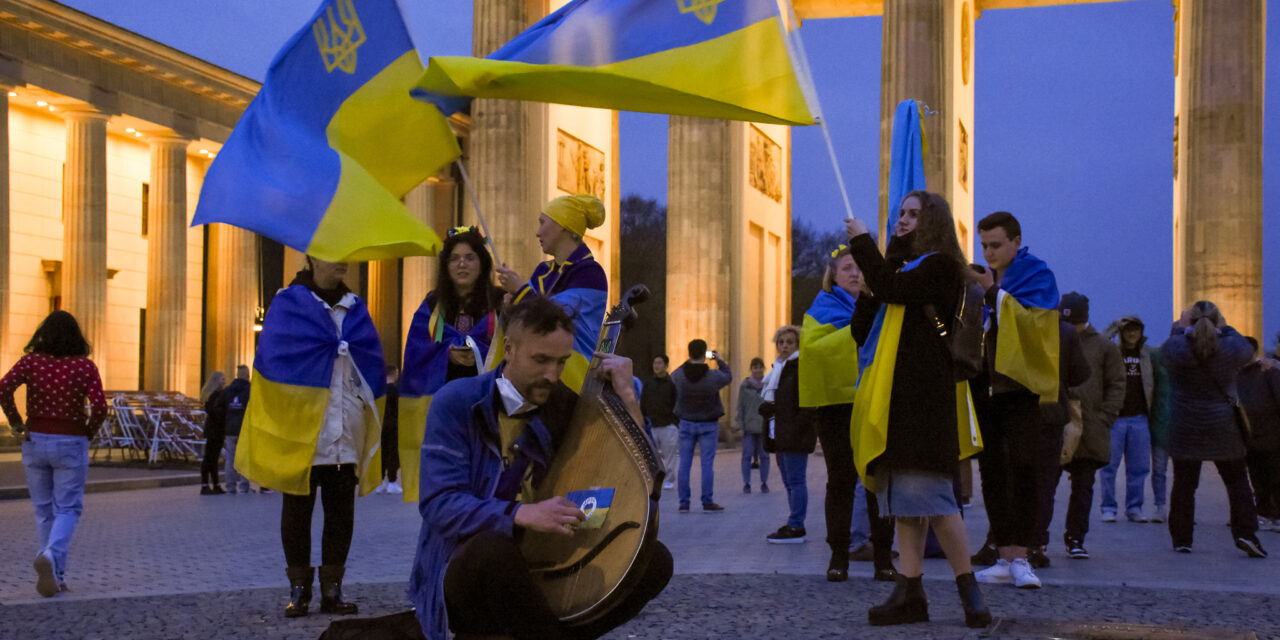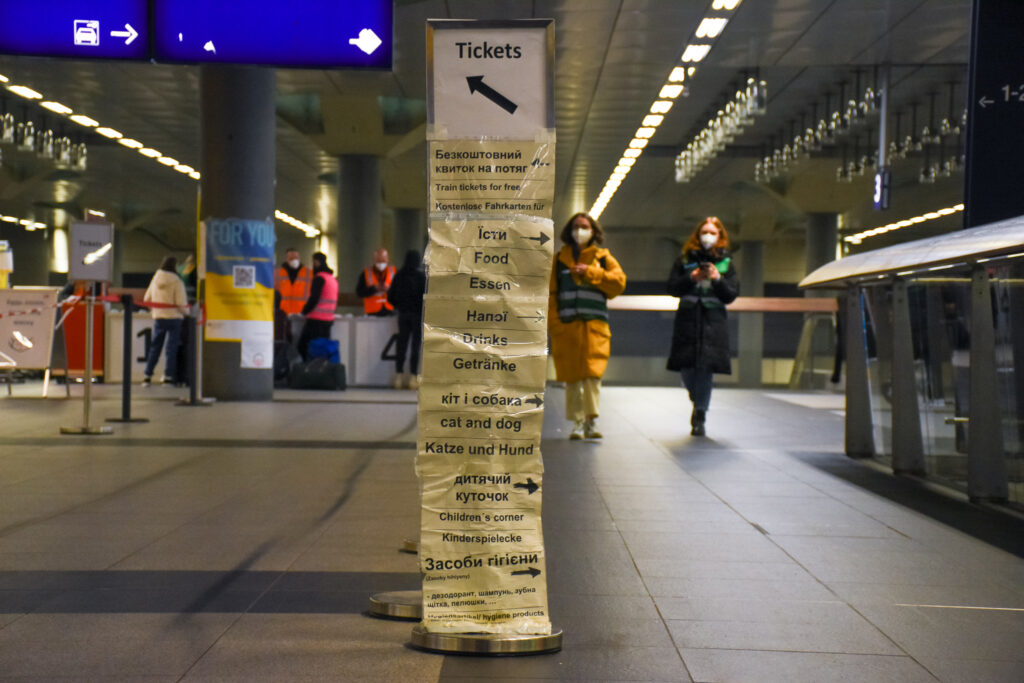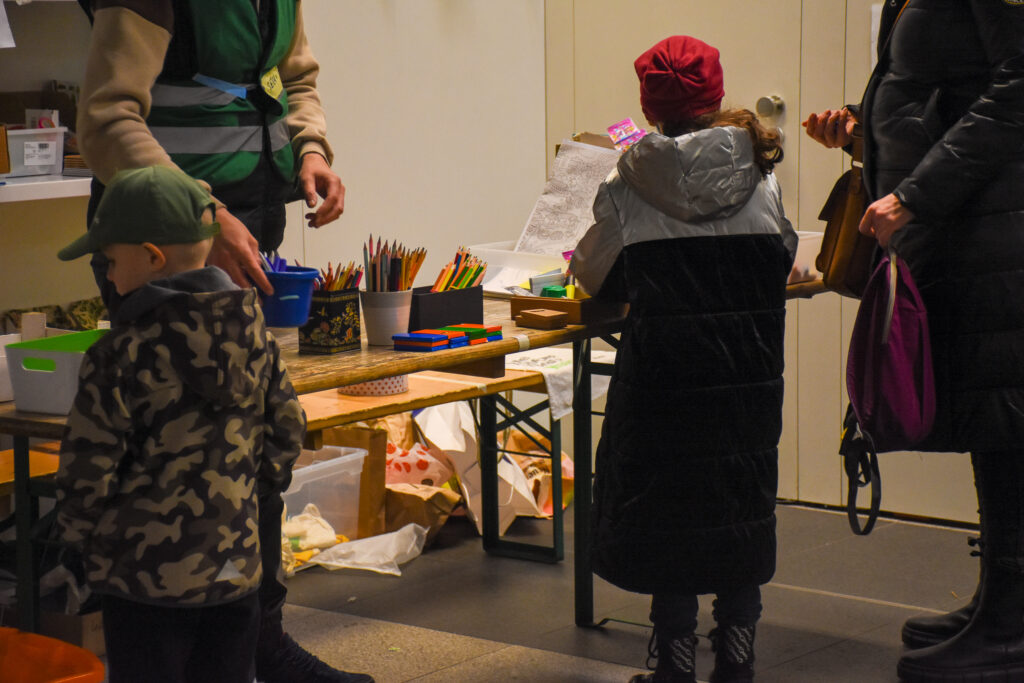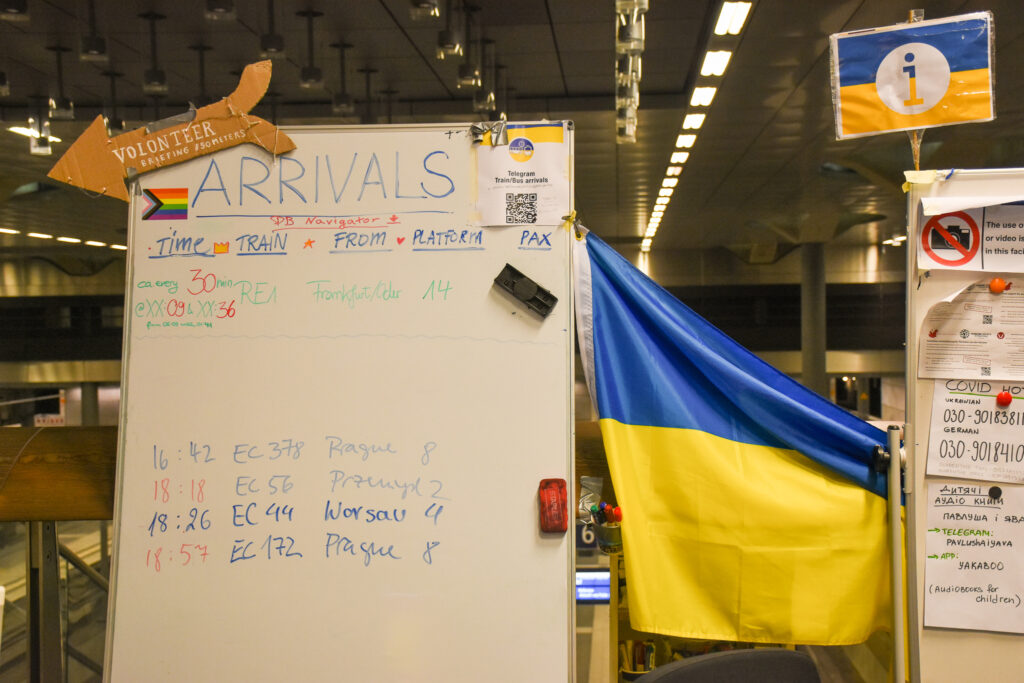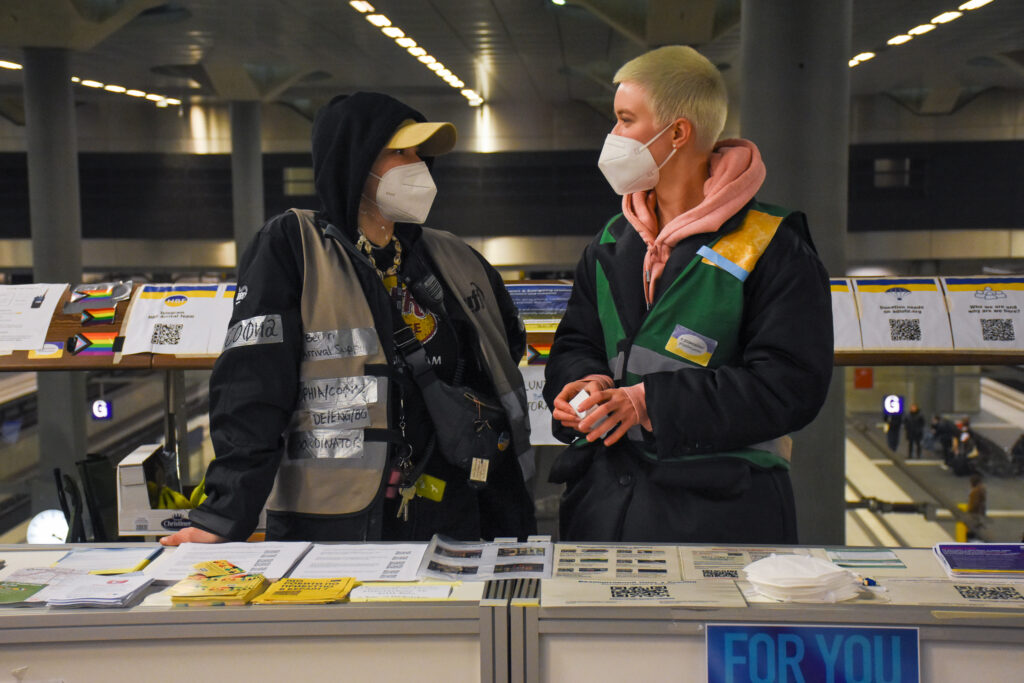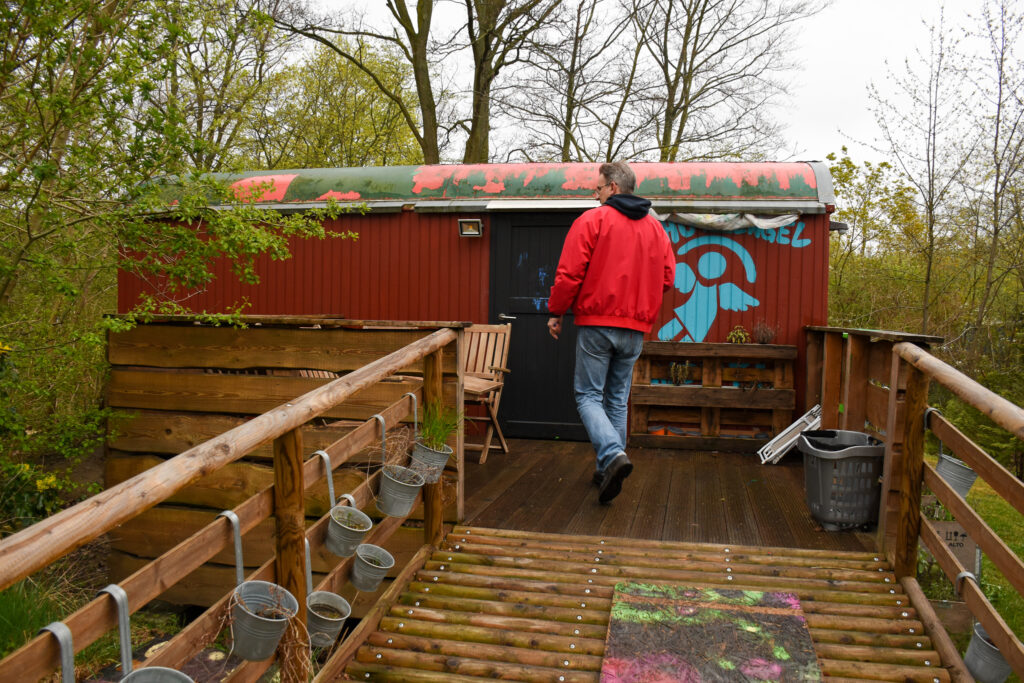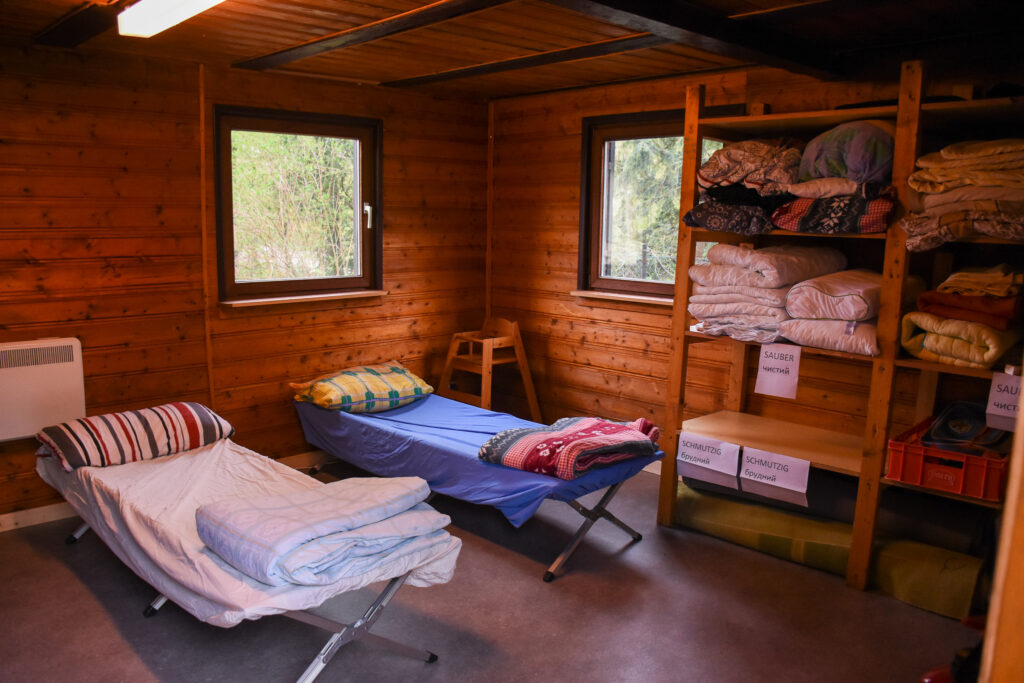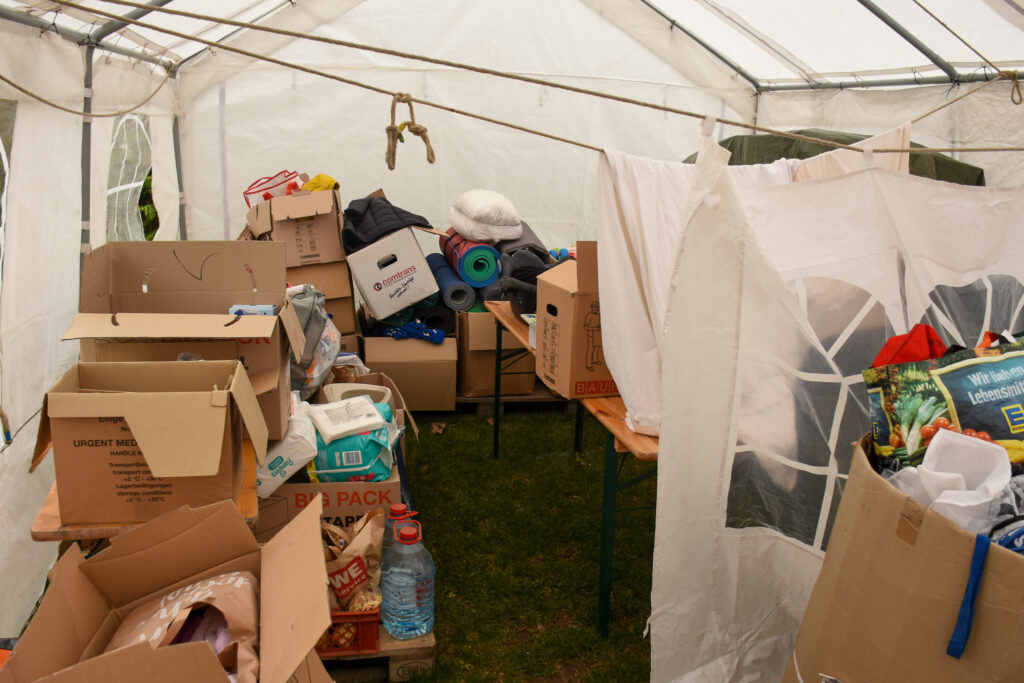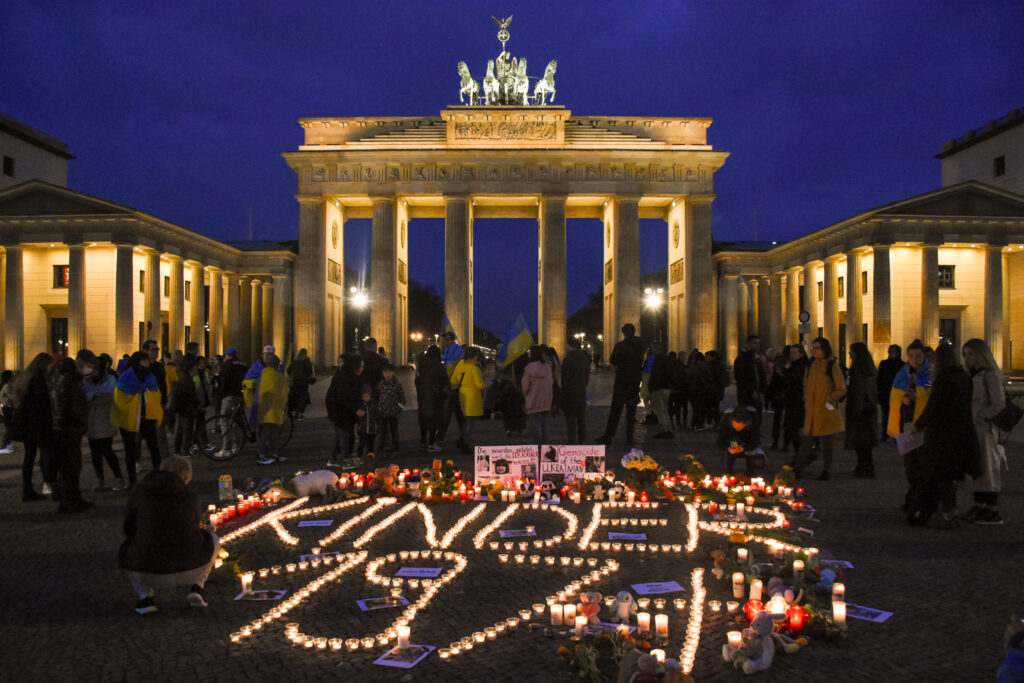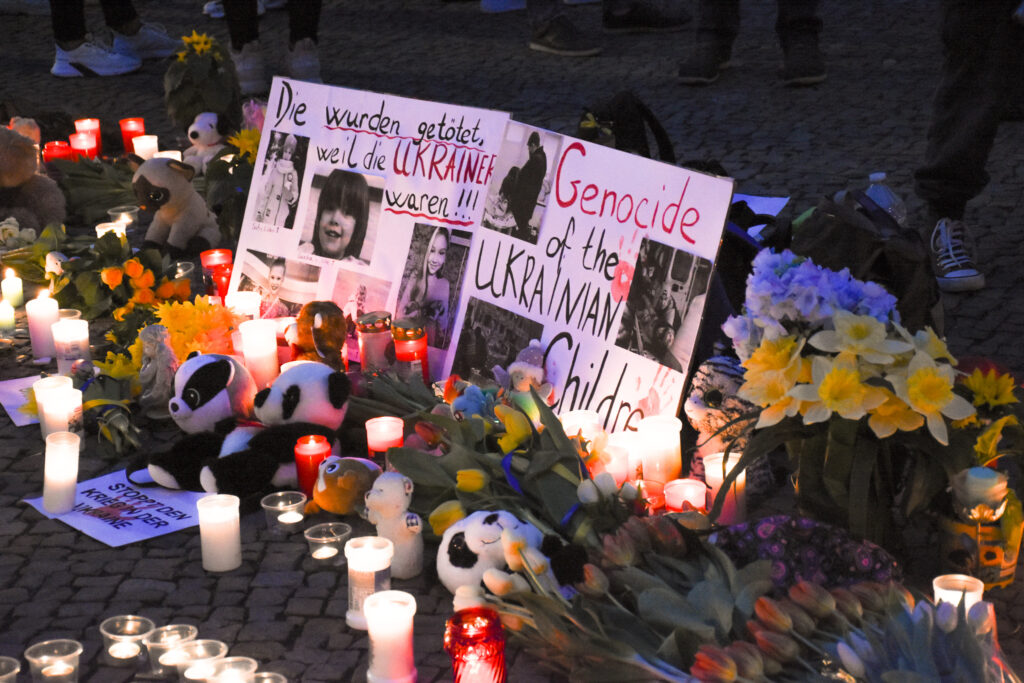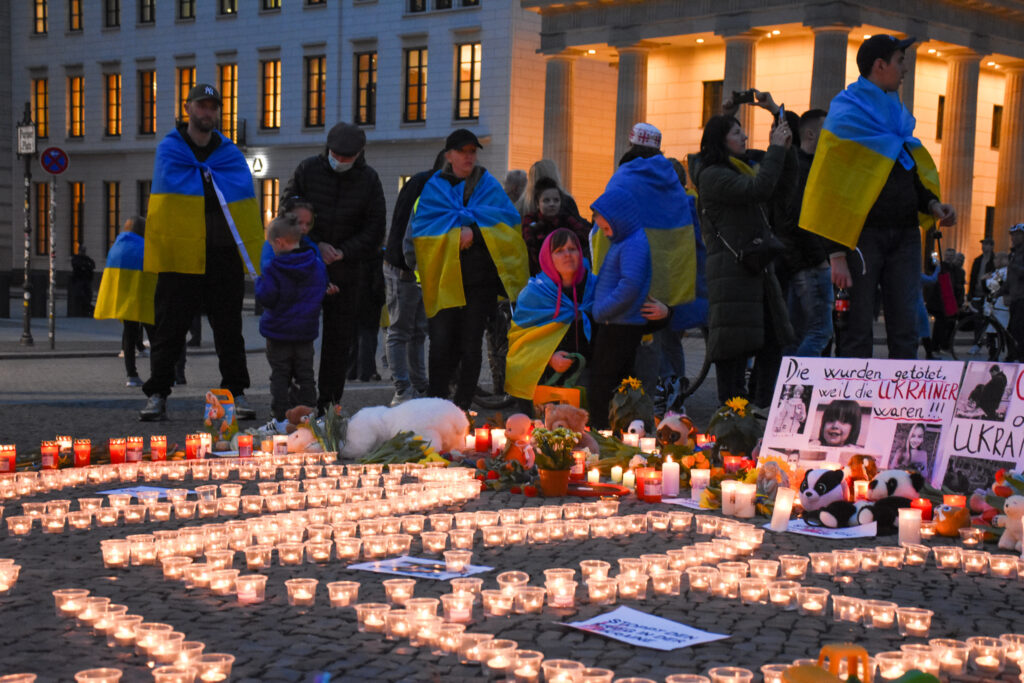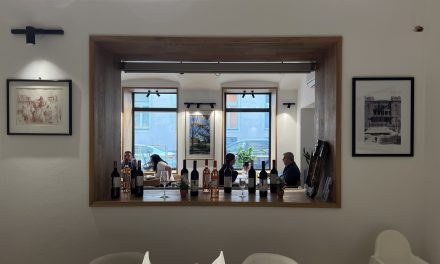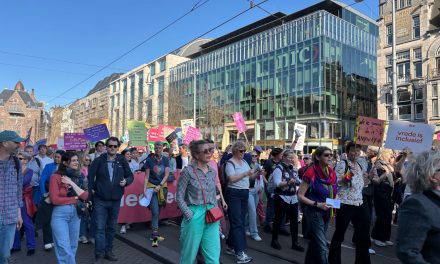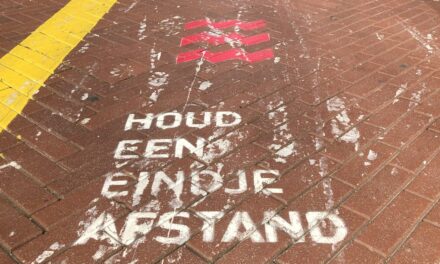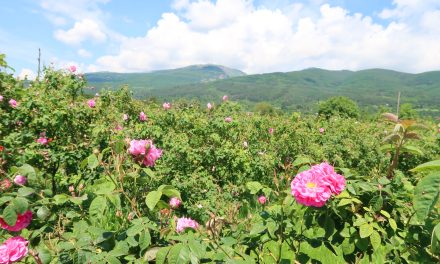Inhabitants of Berlin are welcoming Ukrainian refugees like a role model of the “German welcoming culture”. Since the war in Ukraine started over 300,000 refugees came already to Germany. Of how tango connects throughout countries, volunteers spend their time waiting at the train station and scout camps turned into refugee accommodation. How Berliners help.
“On the second or third evening we already danced Tango in the living room”, Christine tells about the first time with her guest. Mariya* was born and raised in Kiev, after her marriage she moved to Crimea. Five weeks ago she arrived in Berlin, as around 60,000 other Ukrainian refugees fleeing the war and finding help in Berlin. Christine and Mariya have one great connection – they are both part of the tango dancing community. Via a Facebook group where tango dancers help other tango dancers Christine from Berlin got to know about Mariya and that she is looking for accommodation. After ten days of texting, Mariya arrived at the four-room flat of Christine in Berlin, Kreuzberg. “In the beginning she was really humble. She asked: ‘Can I take a little 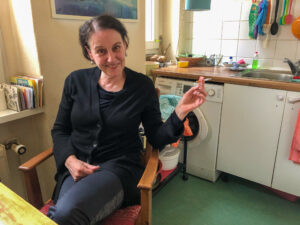 bit of this juice or may I make myself another bread?’ Over time it got better, she also eats more now. In the beginning she almost ate nothing.”
bit of this juice or may I make myself another bread?’ Over time it got better, she also eats more now. In the beginning she almost ate nothing.”
Christine used to work as a nurse and is retired now. She never hosted a refugee before. This time when the war in the Ukraine began, she told herself: “I have time, I have a little space, I can at least host someone at home.” And not only this: Now that her guest is here she also always tries to connect her with other people in Berlin and help her financially. “I sent 62 WhatsApp and Facebook messages and with this and the help of the Tango community we were able to gather 1070€”, Christine smiles. The reactions of people in Christine’s environment are overall really positive when she tells them about hosting a refugee. “I get a lot of help of my environment. We were able to collect Tango shoes for her. The people are really generous.”
Green vests and yellow stickers
On this Friday afternoon at 4:42 pm there is a train arriving from Prague to Berlin central station. The community of volunteers already wait for this train as many Ukrainian refugees are expected to be in this train. A green safety jacket identifies the volunteers. Their name and the languages they speak are on a little patch on the jacket. If they have a yellow sticker it means that this person speaks Ukrainian. David is ready to help, he waits till someone needs his help. “It’s the fifth time that I volunteer here. There are a lot fewer people arriving then they did in the beginning. Everything had to be fast when the war started and the first people arrived. All these posters and signs you can see here were handwritten, we had to improvise.”, David is pointing at a yellow and blue sign that says on where to go to get free tickets and food in Ukrainian, English and French. David doesn’t speak Ukrainian but still wants to help.
Following the signs down the corridor the refugees will find a “helping centre” where volunteers and employees of “Deutsche Bahn” await them already. On the left there are volunteers coaching new volunteers, followed by two stands of Deutsche Bahn where Ukrainian refugees get free ticket to travel to other parts of Germany. On the right side Children stand in front of a desk covered in toys, waiting for a volunteer to give them toys to play with and colours to draw. Free food and drinks are provided, volunteers provide flyers with further information and have conversations with families. All the volunteers have to be briefed and present a negative covid test when they want to help. A covid test station at the helping centre gives them the opportunity to get there test every day.
- Signs all over the train station guide refugees to the areas where the can get help.
- The kids area where people can play and get toys.
- Information of volunteers for volunteers.
- Volunteers at the info desk.
From a summer camp to a refugee accommodation
In the south of Berlin the so called “Abenteueroase” can be found. An area with huts, a fireplace and garden beds where normally children play and camps for scouts are held. Hans-Christian is one of the scouts responsible for this place. When the war began he and his community wanted to help. “One of the other scout said to me: ‘One of my colleagues already went to Ukraine two times. Why don’t we do this?’ And then we started.”, says Hans-Christian.
They took their van, filled it with utensils collected from friends and family and drove to the Ukrainian borders – several times. After that they realized that a professional organisation to shift donation is needed and they wanted to help here in Berlin. The scout camp was reorganized as a refugee accommodation where up to 20 people live temporally. Aside of his full time job he spends a lot of time in this area. Sometimes he gets calls at 10pm because another family has to get picked up of the train station: “We are scouts. It was always the motivation that we help voluntary, it is also fun for us and of course we want to make the world to a better place.”
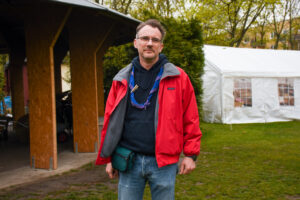
Hans-Christian in the garden of the scouts camp.
In a tent next to the playground they still collect all kinds of donations and utensils in case the refugees arrive need something. Even though it is a lot of additional work for him and the whole community, they try to help: “It is so close, it is our concern to make a difference.”
- One of the accommodations from the outside.
- On of the huts where refugees are sleeping.
- A tent with lots of donations.
Candles on the ground and flags in the air
Not only people that host refugees or help at the train station show the welcoming vein and solidarity of the Berliners. Ukrainian flags are hung from balconies and windows all over Berlin. Demonstrations and manifestations are on the agenda in Berlin almost daily. A guitarist plays an Ukrainian song, people are waving Ukrainian flags behind him. Others are covered in flags. 197 children have already died in the war at this time. Little candles on the floor say so.
- People gather in front of the Brandenburger gate to think about the children who died during war.
- Candles, flowers and posters are gathered on the ground.
- A lot of children were also at the demonstration.
From Berlin to London
Mariya and her daughter are reunited in Berlin. Her daughter also flew the war. In the next time they will continue their new live together. Mariya got to know another tango dancer, Olga. She lives in London and owns a dance school. Mariya got a job offer from her and she will be able to help at the dancing school giving Tango lessons.
Even though there are hardly any cultural difficulties when Christina and her guest live together, it is a great responsibility, a lot of commitment and sometimes exhausting. Still, “there are so many rewarding moments.”, Christine extinguishes her cigarette and smiles. She is happy for Maryia that she got a visa for England.
*name changed by the editorial
